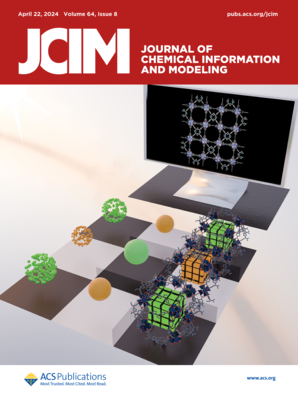基于分子拓扑分组和亚结构感知专家的药物反应预测。
IF 5.3
2区 化学
Q1 CHEMISTRY, MEDICINAL
引用次数: 0
摘要
癌症仍然是对人类健康的主要威胁。肿瘤的异质性往往导致肿瘤生长速度、侵袭能力、药物敏感性和预后的差异,使治疗策略复杂化。目前,药物反应往往是通过耗时和昂贵的生物实验来验证的,这阻碍了抗癌药物和精准医学的发展。随着深度学习的发展,人们提出了各种药物反应预测模型。然而,很少有研究考虑到分子拓扑性质对药物特征提取和药物反应预测的影响。在这项研究中,我们提出了DeepExpDR,一个用于药物反应预测的深度专家框架。我们首先预训练一个自监督聚类模型,根据药物分子支架的相似性对药物进行分组,然后将每个药物组分配给专门的子结构感知专家。每个专家都结合了一个子结构传感网络,该网络从子结构序列、癌细胞转录基因表达值和药物反应相关矩阵中预测药物反应信息。最后,对专家的预测反应进行加权求和,生成最终的IC50值。实验结果表明,DeepExpDR在温暖和寒冷的环境下,在回归和分类任务中都达到了最先进的性能。我们的案例研究进一步验证了DeepExpDR在检测未知癌症药物反应方面的有效性。数据和代码可在https://github.com/ZYPssss/DeepExpDR上获得。本文章由计算机程序翻译,如有差异,请以英文原文为准。
DeepExpDR: Drug Response Prediction through Molecular Topological Grouping and Substructure-Aware Expert.
Cancer remains a major threat to human health. Tumor heterogeneity often leads to differences in tumor growth rate, invasion capacity, drug sensitivity, and prognosis, which complicates treatment strategies. Currently, drug responses are often verified through time-consuming and costly biological experiments, hindering the development of anticancer drug and precision medicine. With advancements in deep learning, various models for drug response prediction have been proposed. However, few of them take into account the impact of molecular topological properties on drug feature extraction and drug response prediction. In this study, we present DeepExpDR, a deep expert framework designed for drug response prediction. We first pretrain a self-supervised clustering model to group drugs based on their molecular scaffold similarities and then assign each drug group to a specialized substructure-aware expert. Each expert incorporates a substructure sensing network, which predicts drug response information from substructure sequences, cancer cell transcriptional gene expression values, and drug response correlation matrices. Finally, the predicted responses from experts are weighted summed to generate the final IC50 value. Experimental results demonstrate that DeepExpDR achieves state-of-the-art performance in both warm and cold settings, across regression and classification tasks. Our case study further verifies the effectiveness of DeepExpDR for detecting unknown cancer drug responses. Data and codes are available on https://github.com/ZYPssss/DeepExpDR.
求助全文
通过发布文献求助,成功后即可免费获取论文全文。
去求助
来源期刊
CiteScore
9.80
自引率
10.70%
发文量
529
审稿时长
1.4 months
期刊介绍:
The Journal of Chemical Information and Modeling publishes papers reporting new methodology and/or important applications in the fields of chemical informatics and molecular modeling. Specific topics include the representation and computer-based searching of chemical databases, molecular modeling, computer-aided molecular design of new materials, catalysts, or ligands, development of new computational methods or efficient algorithms for chemical software, and biopharmaceutical chemistry including analyses of biological activity and other issues related to drug discovery.
Astute chemists, computer scientists, and information specialists look to this monthly’s insightful research studies, programming innovations, and software reviews to keep current with advances in this integral, multidisciplinary field.
As a subscriber you’ll stay abreast of database search systems, use of graph theory in chemical problems, substructure search systems, pattern recognition and clustering, analysis of chemical and physical data, molecular modeling, graphics and natural language interfaces, bibliometric and citation analysis, and synthesis design and reactions databases.

 求助内容:
求助内容: 应助结果提醒方式:
应助结果提醒方式:


